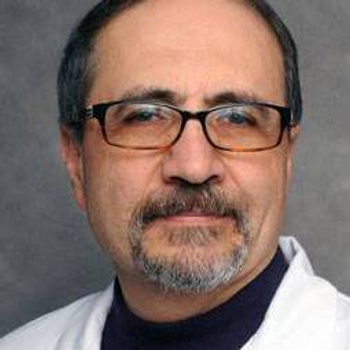Angiodysplasia of the Colon Overview
Learn About Angiodysplasia of the Colon
View Main Condition: Arteriovenous Malformation
Angiodysplasia of the colon is a vascular abnormality characterized by dilated, fragile blood vessels in the mucosa and submucosa that predispose to bleeding. It is one of the most common causes of lower gastrointestinal (GI) bleeding in older adults, often presenting as chronic occult bleeding leading to iron deficiency anemia or as overt lower GI hemorrhage. Although typically benign, the condition can be clinically significant, especially in patients with comorbidities such as cardiac or renal disease.
First recognized as a distinct entity in the 1970s with the advent of colonoscopy and selective mesenteric angiography, angiodysplasia is now a well-documented cause of intermittent or recurrent bleeding. Understanding its underlying mechanisms, diagnostic approaches, and management options is essential to preventing morbidity and improving patient outcomes.
Angiodysplasia refers to acquired, degenerative vascular lesions within the gastrointestinal tract. These lesions are composed of clusters of dilated, thin-walled capillaries, venules, and arterioles in the mucosal and submucosal layers. Because they lack the normal muscular and elastic support of healthy vessels, they are prone to intermittent bleeding.
In the colon, angiodysplasias most commonly affect the cecum and ascending colon. This predilection is thought to arise from higher wall tension and relatively lower oxygenation in these regions. Unlike congenital arteriovenous malformations, angiodysplasias develop later in life and are associated with aging and degenerative changes in the vasculature.
Histologically, these lesions show direct communications between arterioles and venules without intervening capillary beds, resulting in fragile vessels that can rupture under minimal stress.
The prevalence of angiodysplasia increases with age and comorbid vascular conditions. While exact rates are uncertain due to asymptomatic cases, several epidemiologic trends have been established:
- Accounts for approximately 3–6% of all lower GI bleeding in the general population.
- Responsible for up to 30–40% of lower GI bleeding cases in individuals over 60 years of age.
- Autopsy studies suggest a 1–5% prevalence, with higher incidence in those with cardiac disease, chronic kidney disease (CKD), or aortic stenosis.
This condition is uncommon in younger populations but becomes an increasingly important differential diagnosis for unexplained anemia or recurrent GI bleeding in older adults.
Etiology
The development of angiodysplasia is thought to be multifactorial and degenerative, largely associated with aging and intermittent venous obstruction within the colonic wall during peristalsis. Over time, these repeated low-grade episodes lead to dilation, vascular fragility, and formation of thin-walled vascular tufts.
Pathophysiological Mechanisms
- Intermittent venous obstruction during colonic contractions raises venous pressure, promoting dilation of submucosal vessels.
- Chronic hypoxia of the colonic wall triggers angiogenesis and vascular remodeling.
- Loss of vascular smooth muscle and elastic fibers leads to wall thinning and fragility.
- Increased expression of angiogenic mediators such as vascular endothelial growth factor (VEGF) and basic fibroblast growth factor (bFGF) perpetuates lesion formation.
Risk Factors
- Age >60 years (most significant factor)
- Chronic kidney disease (CKD)
- Aortic stenosis (Heyde’s syndrome) — shear stress across the stenotic valve causes loss of high-molecular-weight von Willebrand factor multimers, impairing platelet adhesion.
- Von Willebrand disease
- Anticoagulant or antiplatelet therapy
- Cardiac disease with low-output states
- Radiation-induced vascular injury (less common)
These risk factors can contribute to either the formation of angiodysplasias or increased bleeding risk once lesions are present.
The pathogenesis is best explained by a chronic, intermittent obstruction model:
- Repetitive venous obstruction during normal peristalsis causes transiently elevated venous pressure.
- Capillary dilation and formation of small arteriovenous shunts occur.
- Loss of vascular integrity follows due to atrophy of the smooth muscle layer and fragmentation of elastin.
- Fragile dilated vessels develop, particularly in the right colon, where wall tension is greatest.
In patients with aortic stenosis, decreased high-molecular-weight von Willebrand factor further impairs hemostasis, exacerbating bleeding from existing lesions. This association—known as Heyde’s syndrome—highlights the complex interplay between cardiovascular pathology and colonic vascular lesions.
The clinical presentation of angiodysplasia varies from asymptomatic incidental findings to life-threatening bleeding episodes.
1. Asymptomatic Cases
- Many lesions are discovered incidentally during colonoscopy or imaging.
- No associated pain or systemic symptoms.
2. Overt Gastrointestinal Bleeding
- Painless hematochezia (bright red or maroon stools) is the most common presentation.
- Bleeding is often intermittent and self-limiting but may recur.
- In severe cases, patients may present with hemodynamic instability.
3. Occult Gastrointestinal Bleeding
- Chronic, slow blood loss leads to iron deficiency anemia.
- Symptoms include fatigue, pallor, and dyspnea on exertion.
4. Massive Lower GI Hemorrhage
- Rare but potentially life-threatening.
- May require transfusions and urgent intervention.
Physical findings are often non-specific but may include pallor, tachycardia, or hypotension in acute bleeding. Abdominal tenderness is usually absent.
Diagnosis depends on clinical presentation, hemodynamic status, and appropriate imaging or endoscopic evaluation.
Initial Laboratory Workup
- Complete blood count (CBC): Detects anemia and estimates blood loss.
- Iron studies: Reveal low ferritin and serum iron levels.
- Coagulation profile: Rules out coagulopathies.
- Renal function tests: Assess comorbid CKD.
Diagnostic Modalities
Colonoscopy (First-Line)
- Gold standard for visualization.
- Lesions appear as flat or slightly raised, bright red vascular tufts with fern-like or spider-web patterns.
- Best identified during or shortly after bleeding episodes.
- Allows for simultaneous diagnosis and endoscopic treatment.
Capsule Endoscopy
- Useful for evaluating obscure GI bleeding when standard endoscopy is inconclusive.
- Detects small bowel lesions that may coexist with colonic angiodysplasia.
Computed Tomography Angiography (CTA)
- Non-invasive and rapid.
- Detects bleeding rates of 0.3–0.5 mL/min.
- Guides localization prior to interventional therapy.
Radionuclide Scanning (Tagged RBC Scan)
- Detects very slow bleeding (as low as 0.1 mL/min).
- Poor spatial resolution limits its use for localization.
Mesenteric Angiography
- Both diagnostic and therapeutic.
- Shows early filling of dilated veins and vascular tufts.
- Enables embolization of bleeding vessels.
Differential Diagnosis for Angiodysplasia
Conditions that can mimic angiodysplasia include:
- Diverticulosis
- Colorectal carcinoma
- Inflammatory bowel disease (IBD)
- Ischemic colitis
- Hemorrhoids
- Radiation proctitis
- Colonic polyps
- Meckel’s diverticulum (especially in younger patients)
Distinguishing among these is critical, as management strategies differ significantly.
Management strategies are guided by bleeding severity, patient comorbidities, and recurrence risk.
Acute Bleeding Management
Resuscitation and Stabilization
- IV fluid resuscitation and blood transfusions as needed.
- Continuous hemodynamic and laboratory monitoring.
Correction of Coagulopathies
- Discontinue or adjust anticoagulant therapy.
- Administer vitamin K or fresh frozen plasma if required.
Localization of Bleeding
- Perform colonoscopy in stable patients.
- Use CTA or tagged RBC scanning in unstable patients.
Endoscopic Therapy
First-line treatment for accessible lesions:
- Argon Plasma Coagulation (APC): The most effective and widely used modality.
- Thermal coagulation (heater probe or bipolar electrocautery).
- Epinephrine injection: Provides temporary control but is not definitive.
Angiographic Intervention
- Transcatheter arterial embolization with microcoils or polyvinyl alcohol particles.
- Useful when endoscopy is unsuccessful or contraindicated.
- Complications include rare cases of bowel ischemia, mitigated by super-selective embolization.
Pharmacologic Therapy
- Octreotide: Reduces splanchnic blood flow and inhibits angiogenesis; shown to decrease rebleeding in chronic cases.
- Hormonal therapy (estrogen-progesterone): Historically used but now largely obsolete due to limited efficacy.
Surgical Management
Reserved for refractory or life-threatening cases:
- Segmental colectomy: When bleeding site is localized.
- Subtotal colectomy: For diffuse, unlocalized bleeding. Surgery is high risk in elderly patients and typically a last resort.
- Recurrent bleeding: Occurs in up to 40% of patients.
- Chronic iron deficiency anemia.
- Hemodynamic instability during acute hemorrhage.
- Post-procedure complications:
- Perforation or post-polypectomy syndrome following endoscopic therapy.
- Bowel ischemia after embolization.
- Surgical complications such as infection or anastomotic leak.
Prognosis varies depending on the patient’s comorbid conditions and bleeding severity. Most patients achieve satisfactory control with endoscopic or pharmacologic therapy. Key points include:
- Endoscopic therapy controls bleeding in the majority of cases.
- Rebleeding is common, requiring ongoing monitoring and potential retreatment.
- Mortality is generally related to comorbid conditions rather than angiodysplasia itself.
No definitive preventive strategy exists, but certain measures may reduce recurrence or morbidity:
- Avoid unnecessary anticoagulation in high-risk patients.
- Regularly monitor hemoglobin levels in patients with known angiodysplasia.
- Manage aortic stenosis or cardiac dysfunction to reduce risk.
- Use long-acting octreotide as secondary prophylaxis in patients with recurrent bleeding.
Follow-up colonoscopies and periodic blood tests help track lesion recurrence and anemia.
For patients with chronic or recurrent angiodysplasia, lifestyle and medical management focus on preventing anemia and managing comorbidities:
- Maintain iron supplementation as directed.
- Monitor for symptoms of anemia (fatigue, shortness of breath).
- Adhere to follow-up endoscopic or imaging evaluations.
- Report recurrent rectal bleeding promptly.
- Maintain cardiovascular health and manage chronic diseases that can exacerbate bleeding.
Angiodysplasia of the colon is a frequent cause of lower GI bleeding in older adults and a major contributor to chronic iron deficiency anemia. Its degenerative vascular nature links it to aging, hemodynamic stress, and systemic disorders such as aortic stenosis and chronic kidney disease. Diagnosis relies on endoscopic and imaging modalities, while treatment focuses on endoscopic coagulation, pharmacologic support, and selective angiographic or surgical interventions for refractory cases.
A proactive approach involving timely diagnosis, endoscopic management, and vigilant monitoring can significantly improve outcomes. Advances in endoscopic technology and understanding of angiogenic mechanisms continue to enhance treatment efficacy and may pave the way for future preventive strategies.
- Boley SJ, Sammartano RJ, Adams A, DiBiase A. On the nature and etiology of vascular ectasias of the colon. Gastroenterology. 1977;72(4 Pt 1):650-660.
- Sami SS, Al-Araji SA, Ragunath K. Gastrointestinal angiodysplasia: pathogenesis, diagnosis, and management. Aliment Pharmacol Ther. 2014;39(1):15-34.
- Jackson CS, Gerson LB. Management of gastrointestinal angiodysplastic lesions: a systematic review and meta-analysis. Am J Gastroenterol. 2014;109(4):474-483.
- Junquera F, Saperas E, Videla S, et al. Long-term efficacy of octreotide in preventing recurrent bleeding from gastrointestinal angiodysplasia. Am J Gastroenterol. 2007;102(2):254-260.
- Foutch PG. Angiodysplasia of the gastrointestinal tract. Am J Gastroenterol. 1993;88(6):807-818.
- Brown WR, Riddell RH. Vascular ectasias of the colon. Am J Surg Pathol. 1990;14(9):807-815.
Advocate Medical Group Gastroenterology
Rogelio Silva is a Gastroenterologist in Oak Lawn, Illinois. Dr. Silva is rated as a Distinguished provider by MediFind in the treatment of Angiodysplasia of the Colon. His top areas of expertise are Angiodysplasia of the Colon, Gastrointestinal Bleeding, Chronic Erosive Gastritis, Gastrectomy, and Gastrostomy.
Advocate Medical Group Gastroenterology
Hareth Raddawi is a Gastroenterologist in Oak Lawn, Illinois. Dr. Raddawi is rated as a Distinguished provider by MediFind in the treatment of Angiodysplasia of the Colon. His top areas of expertise are Gastrointestinal Bleeding, Bile Duct Obstruction, Cholestasis, Gastrectomy, and Endoscopy.
Advocate Medical Group Gastroenterology
Imad Elkhatib is a Gastroenterologist in Oak Lawn, Illinois. Dr. Elkhatib is rated as a Distinguished provider by MediFind in the treatment of Angiodysplasia of the Colon. His top areas of expertise are Cholestasis, Bile Duct Obstruction, Bile Duct Stricture, Endoscopy, and Gastrectomy.
Summary: The purpose of this study is to evaluate the impact of cryotherapy spray treatment for eradication of gastric antral vascular ectasia by measuring the change in hemoglobin levels and transfusion requirements in the first 6 months of cryotherapy treatment compared to the previous 6 months
Summary: The researchers are trying to find out more about Gastric Antral Vascular Ectasia (GAVE). This is a condition that affects the blood vessels in the stomach, leading to their enlargement and possible bleeding. It can also cause symptoms such as abdominal pain and nausea. By participating in this study, you will help us learn how often these symptoms occur and how they relate to stomach functioning.


